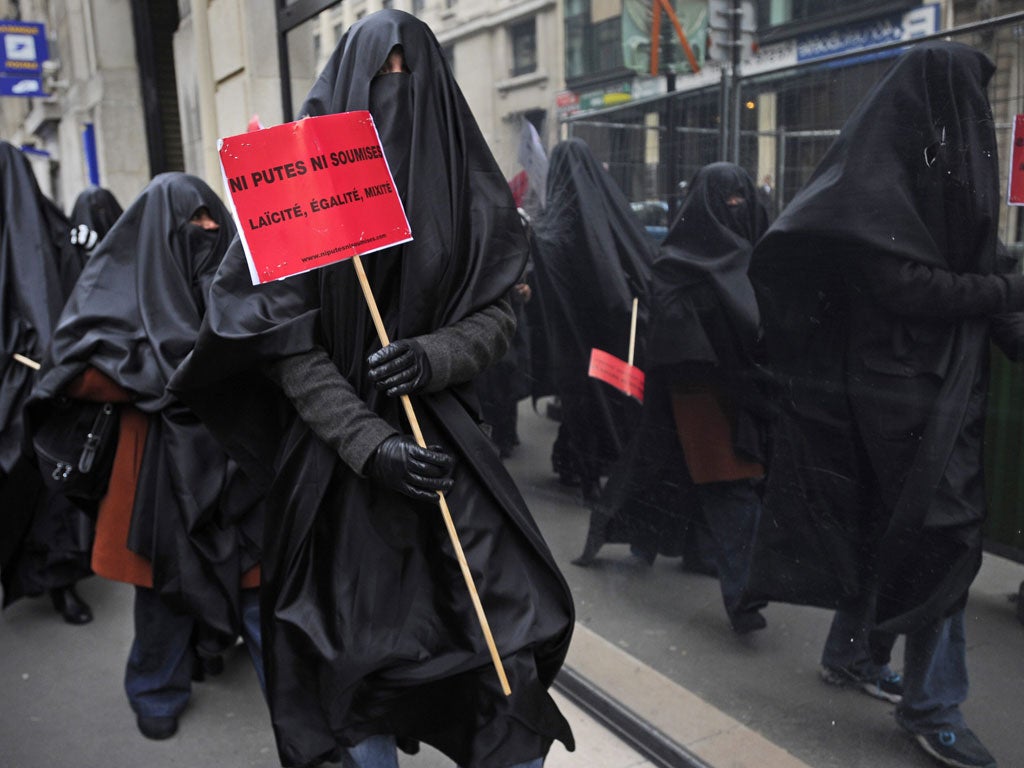Nabila Ramdani: For French Muslims, this horror only makes matters worse


Your support helps us to tell the story
From reproductive rights to climate change to Big Tech, The Independent is on the ground when the story is developing. Whether it's investigating the financials of Elon Musk's pro-Trump PAC or producing our latest documentary, 'The A Word', which shines a light on the American women fighting for reproductive rights, we know how important it is to parse out the facts from the messaging.
At such a critical moment in US history, we need reporters on the ground. Your donation allows us to keep sending journalists to speak to both sides of the story.
The Independent is trusted by Americans across the entire political spectrum. And unlike many other quality news outlets, we choose not to lock Americans out of our reporting and analysis with paywalls. We believe quality journalism should be available to everyone, paid for by those who can afford it.
Your support makes all the difference.Images of armed police milling around the flat of a "neutralised" Muslim of Algerian descent will be welcomed by France's increasingly right-wing political class. As would-be presidents campaign tirelessly towards an election starting next month, they will stress the need to seek out and destroy young men like Mohamed Merah. The 23-year-old "troubled-housing-estate'"kid turned jihad warrior had a truly dismal life record. It covered almost every manifestation of alienated immigrant angst, from petty crime, through to indoctrination in prison, right up to murderous terrorism.
Marine Le Pen, leader of the Front National, has already set the bar in clichéd scare-mongering by saying that French children of all faiths need "protection" from "fundamentalists" like Merah. The implication, of course, is that there are plenty more like him in the so-called banlieues – the vast housing projects on the outskirts of major cities like Toulouse and Paris. It was while growing up in one that Merah is said to have become exposed to Islamic extremism, at one stage even marching around the grey tower blocks holding a sword while shouting "al-Qa'ida!"
It is a pathetic, cartoon-look image, but the kind that has sadly gained increasing credibility over the past few years, as Nicolas Sarkozy's government has lurched determinedly to the right. Claude Guéant, the President's notoriously combative Interior Minister who presided over Merah's death, last year described the growing number of Muslims in France as a "problem". There are now some six million in the country compared to a few hundred thousand when the Republic became a secular one in 1905. Both Sarkozy and Guéant have regularly highlighted every perceived "problem" associated with Muslims, including burqa-wearing, eating halal meat, and praying in the street because of a lack of mosques. Behind all of these day-to-day issues is the growing and even more divisive implication that ordinary Muslims are not only anti-social and undesirable, but directly linked to global terrorism. One of the main reasons offered for a burqa ban, for example, was to stop radicals using the garments to hide bombs underneath, and to disguise their identities. Centrist presidential candidate François Bayrou was among those who described the formulation of such theories as "poisonous", while even Gilles Bernheim, France's grand rabbi, admitted: "It's often difficult to be a Muslim in France. This difficulty is worse today in this unhealthy climate, aggravated by talk that divides rather than unites."
Extremist rhetoric underpinned by policies designed to stigmatise will attract disillusioned nationalist voters in the race for the Elysée Palace, but they ignore the real problems facing Muslim communities in modern France: those of discrimination and underachievement. Yes, there are thousands of young men with the same Algerian background as Mohamed Merah, but that does not make them all murderous criminals. Many are the sons of immigrants forced to leave a North African country crippled by 132 years of colonial exploitation. It is now exactly half-a-century since the end of the Algerian War of Independence – one in which up to 1.5 million died and which opened huge divisions between aggrieved survivors. The legacy of hatred between expats forced to return to France and the Algerian economic migrants who joined them burns with a uniquely Gallic ferocity.
Such discord was exacerbated by Mr Sarkozy last month when he said that France would "not repent" for what went on during the war, even though close to 2.5 million Algerians live in the Republic today. They not only form the largest Muslim community, but for the most part still live in those marginalised urban estates which rose out of their forebears' refugee camps. Life has traditionally been hard for all French Muslims, but the kind of images which have been coming out of Toulouse over the past fortnight will make it even worse.
Nabila Ramdani is a Paris-born journalist of Algerian descent who regularly writes about French politics and Islamic affairs
Join our commenting forum
Join thought-provoking conversations, follow other Independent readers and see their replies
Comments